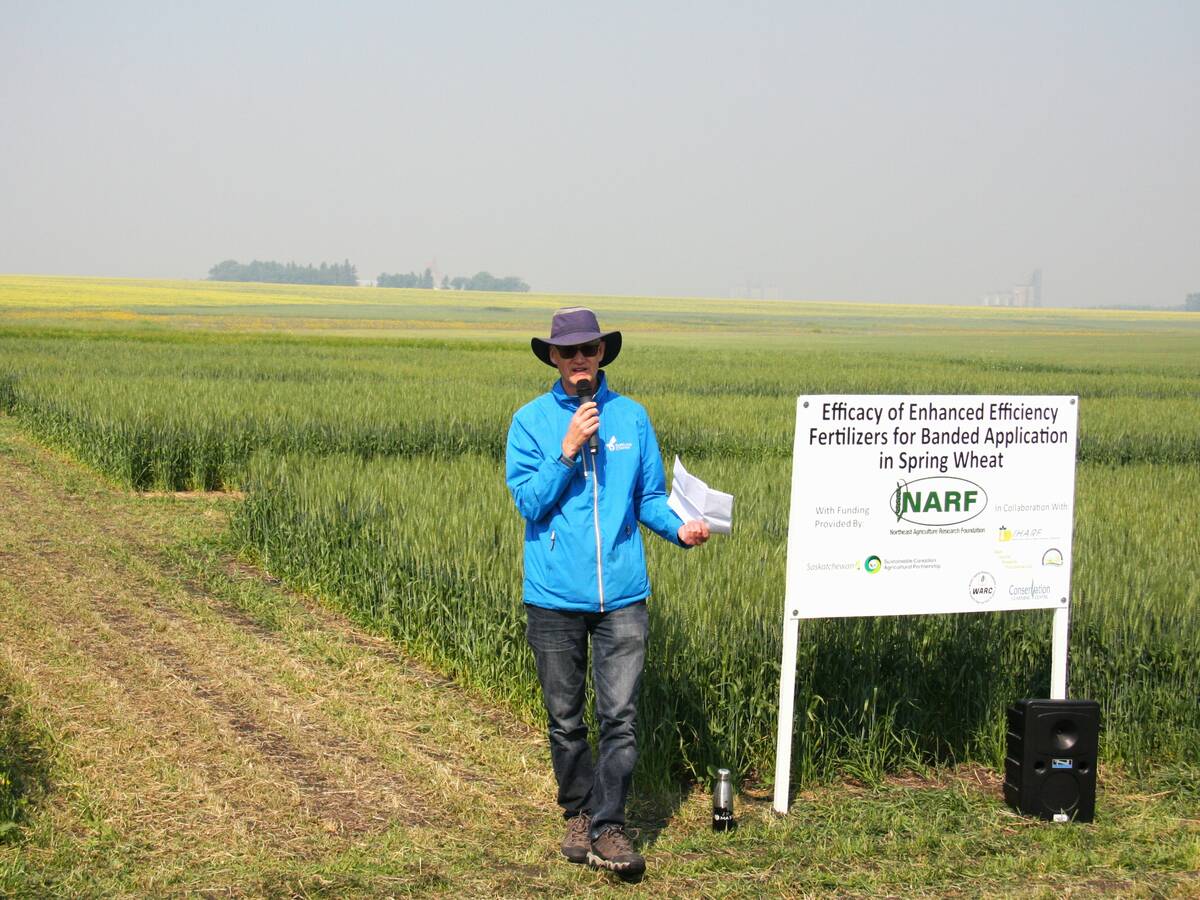Federal and provincial governments are adrift on issues of how to support agriculture, say increasingly aggressive Ontario farm leaders.
While some critics accuse national farm leaders of being acquiescent to government agendas, Ontario leaders are becoming more outspoken.
Federal and provincial governments have no idea how to accommodate food producer needs, Ontario Federation of Agriculture president Bette Jean Crews said in an OFA statement and a later interview.
“There is no particular objective, no vision and no stated intention of the programs other than to maybe provide for immediate, but not necessarily predictable, income stabilization or environmental stewardship, to name two issues,” she said in the OFA statement.
Read Also

Fertilizer method’s link to emissions studied
A researcher says others studying greenhouse gas emissions aren’t considering how the loss of nitrogen into the atmosphere correlates with fertilizer application or if there is an impact to yield.
In a Nov. 12 interview, Crews said urban-dominated governments seem to have forgotten the connection between rural and urban.
“We have to keep reminding them that rural keeps urban alive, that there is a connection,” she said.
Meanwhile, a recently created Ontario Grains and Oilseeds lobby is demanding that Ottawa change its stance of opposing province-specific farm support programs and that it cost-share the Ontario risk management program that would guarantee a cost-of production price to producers if Ottawa paid a 60 percent share of government costs.
The risk management program was launched in 2007 as a provincial pilot project with just Ontario government support.
But it is about to expire and Ottawa has been clear it will not buy into a program it considers too rich and liable to trade challenge.
None of the federal fears impressed supporters of the farm program.
“Ontario’s grains and oilseeds producers strongly encourage the province to make the program permanent and for the federal government to come to the table as partners as we do not want to go back to a system where we stumble from crisis to crisis with emergency aid announcements that cost the government more in the end,” said Ontario Grain and Oilseeds chair Leo Guilbeault.
He said the program has brought stability to the Ontario industry even though it has been under funded. In late November, corn producers will begin to receive a payment of 14.4 cents per bushel marketed, triggered because market prices have been below the minimum cost-based support price set for the year.
Crews said it is time for governments to show that they appreciate the need for a strong agricultural policy.
At present, she said there appears to be an assumption that plentiful food always will be available.
“This attitude may prevail due to the reduction of the political strength of the shrinking number of farmers and the strong desire of governments to divert fiscal resources elsewhere,” Crews said in her OFA commentary.
The provincial farm organization plans a series of public meeting beginning in January aimed at hearing what farmers and consumers think are required parts of a national food strategy.
















